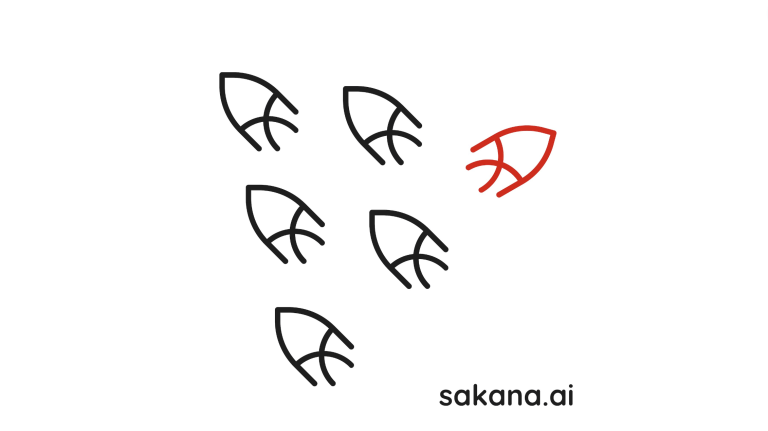Google Cloud recently announced its partnership with ‘Replit’, a cloud-based integrated development environment that allows developers to write and deploy codes in various programming languages from their web browsers.
The partnership aims to turn “non-developers into developers”. With the Google partnership, Replit will get full access to Google Cloud’s infrastructure and Google’s machine learning platform, ‘Vertex AI’. Along with improving productivity, Replit claims that programmers can code complex-architected software in 1/1000th of the time.
So excited to be supporting Replit and developers! https://t.co/cDxvFHczao
— Sundar Pichai (@sundarpichai) March 28, 2023
A day after the partnership announcement, CEO and Head of Engineering at Replit, Amjad Masad confirmed that the company will continue to remain an “open platform” and that they are open to work with more companies to “expand the ecosystem”.
The Need
Masad, in an interview with Semafor, explains the limitations they faced during the initial days. When GPT-2 was out in 2019, he had started playing around with code generation but it was only after GPT-3’s release that its potential was obvious for people. They were also not able to do much because OpenAI was strict about what gets productised and what does not.
“In order to produce something like a Copilot, you have to do a lot of low level engineering, have access to weights and be really fast.” This was something Replit did not have access to but Microsoft had that advantage due to their “special relationship” with OpenAI. It was only after models started getting open sourced, that the company was able to build on their own.
With the Google partnership, Amjad Masad believes that they will now get access to newer models as they are released which will ultimately reach the developers and help with the goal of “accelerating tech into everyone’s hands”.
Platforms and products that work seamlessly in silos are ultimately limited when it comes to full adoption. For example, for a developer who wants to utilise LLMs in their daily work, there needs to be an integrated development environment (IDE) where LLMs are implemented for wider functionality. This is probably where Replit and Google Cloud’s partnership will shine.
Replit has already been implementing artificial intelligence through Ghostwriter—an AI-powered ‘coding partner’ launched in October 2022. Ghostwriter works on LLM which is trained on publicly available code that is fine tuned by Replit. The company even launched a chatbot for Ghostwriter last month, named ‘Ghostwriter Chat’. It is considered the ‘first conversational AI programmer’ to have an interactive experience like ChatGPT.
Over 30% of the codes developed in Ghostwriter are generated by Ghostwriter coding AI. Powered by LLM chat applications, full programme codes can be generated.
Vertex AI allows users to train and deploy AI applications and ML models. AutoML, an option for model training provided by Vertex AI, allows users to train image, text, or video data without writing codes. Vertex AI’s multimodal training model will subsequently help elevate user functionalities in Replit.
Battle of the Behemoths
Running similar functionalities, Replit’s closest competitor is GitHub. With the announcement of Google Cloud’s partnership, the spotlight has returned to the race of the tech giants supporting both companies.
Microsoft’s GitHub was first launched in 2008 and is used by over 94 million developers. Comparatively new player ‘Replit’—founded in 2016—has raked over 20 million developers, as mentioned in their company blog. With Google Cloud partnership, Replit aims to support “one billion software creators” and ultimately also support the goal of enabling companies to promote development using AI.
While there are similar functionalities for both, including the presence of AI features, Replit’s Ghostwriter has an edge over GitHub in certain parameters. In Replit, there is a “real-time multiplayer editor” option, and users can build, test and deploy “directly from the browser”—a unique function that is exclusive to Replit. In addition, the Replit app enables ‘voice commands’. Users can instruct the application via voice prompts to say “make an app” for a specific need. The application will also provide the source code, in case the user needs further modifications.
"Make me an app"—just talk to your @Replit app to make software pic.twitter.com/U1v5m5Un1U
— Amjad Masad (@amasad) March 24, 2023
Is Partnership the Way Ahead?
With Microsoft’s GitHub Copilot considered an essential for coders and Microsoft bringing ChatGPT-like capabilities to GitHub with Copilot X, Google’s push to make a mark in the developer community is evident through its new partnership with Replit.
To remain relevant in the AI race—and probably take on fellow giant Microsoft—forming crucial partnerships with existing players is a hopeful route.
Not far behind is another power partnership—AWS and Hugging Face. Amazon Web Services’ partnership with Hugging Face , a company that develops and maintains open-source libraries for natural language processing (NLP) and machine learning, is another initiative taken by a tech giant to accelerate next-generation ML models by helping developers build them.

































